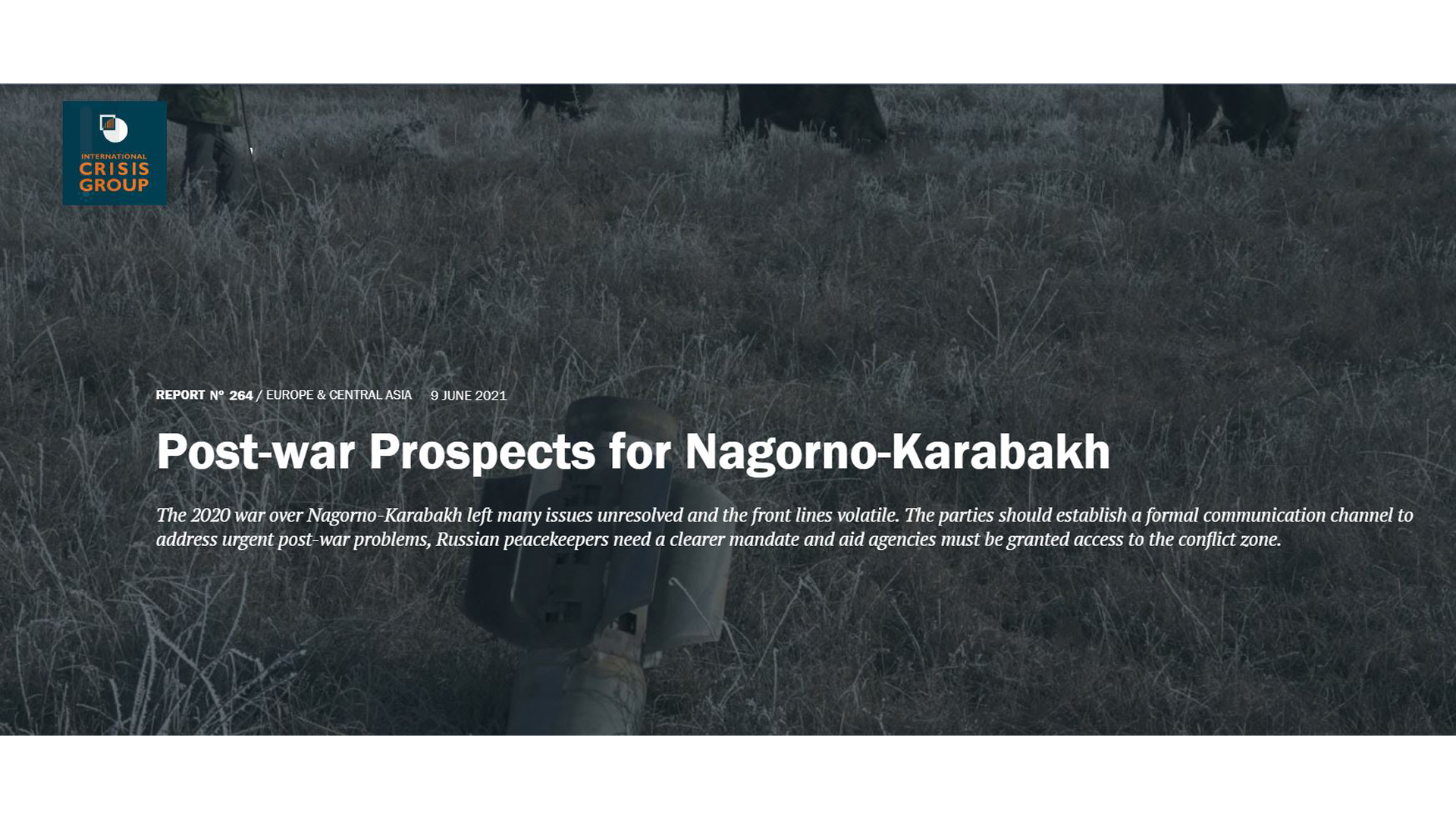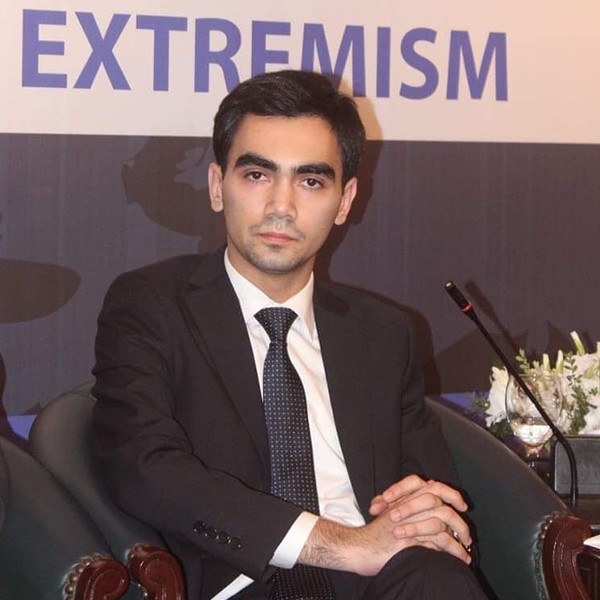The International Crisis Group`s latest report on Karabakh

The Brussels-based International Crisis Group has recently released a report analyzing the new realities and situation on the ground after the Second Karabakh War. The report results from extensive fieldwork and diplomatic correspondence with Armenian and Azerbaijani officials and diplomats from the United States, European countries, Russia, and Turkey. The report consists of four sections, including the introduction and conclusion parts, and examines the Russian peacekeepers, humanitarian problems, the post-war life separately and offers specific suggestions for solving humanitarian problems.
Overall, the authors informed the public about the state of affairs between Armenia and Azerbaijan in the post-war period, using inclusive diplomatic channels. The calls for the establishment of ad hoc contacts to address humanitarian issues, the determination of the clear mandate of the Russian peacekeepers, and more active participation of the international community in the post-war period are constructive points in nature and can be thought-provoking for government stakeholders, civil society institutions and international organizations working for the betterment of the communities in the South Caucasus region.
However, since the report is written in a journalistic style rather than an academic one, politically incorrect and ambiguous concepts have emerged. The authors called Nagorno-Karabakh a "disputed territory" in the report, misleading readers by using a completely wrong international law category. Although the authors may argue that this terminology cues to the fact that the parties have "disputed" positions over the region's future, the use of such ambiguous terminology by an organization dealing with conflicts for years without further explanation is against its professional reputation. Thus, in the modern system of international relations, the term "disputed territory" was mainly used after WWII for the territories of uncertain legal affiliation, and this created a difference between the terms "disputed territory" – a place with uncertain legal affiliation, and "territorial dispute" – a place where two or more parties have conflicted positions. The documents that form the legal basis of the Armenian-Azerbaijani conflict, including the 1993 UN Security Council resolutions, the 2015 European Court of Human Rights ruling on the case of 'Chiragov and others v. Armenia,' and resolutions of other international organizations, including the OSCE, never questioned Nagorno-Karabakh's legal affiliation to the Republic of Azerbaijan per international law. That is, the international community recognized the legal affiliation of the Nagorno-Karabakh to Azerbaijan and refused to call the region a "disputed territory." Therefore, ICG's definition of a "disputed Nagorno-Karabakh region" equates the region with post-colonial conflict areas, misleads the reader, and obscures that the region’s internationally recognized legal status.
The report also notes that "no conflict party seems to have a long-term plan for Nagorno-Karabakh", but the question of the validity of their interviews for such a claim is questionable.
In other words, does the International Crisis Group's report really indicate that Azerbaijan and Armenia do not have a long-term plan for Nagorno-Karabakh? But to what extent is it possible that this plan is not public due to the confidential nature of the talks, but actually does exist?
Perhaps the most serious drawback of this paper is selection bias, which is reflected in reducing the importance of specific humanitarian issues through the augmentation of the other ones. To be more precise, the report has failed to address the issue of landmines, which costs the lives of dozens of civilians and violates the right of more than 700,000 displaced people to return to their former places of residence, right to life, and right to conduct a business. No attempt was made to convey the importance and urgency of this issue, except for a few sentences that gave only a descriptive situation over the landmine issue. Although the report addresses the needs of the Armenian refugee/IDP population, it does not address the new realities for the Azerbaijani IDP population, nor does it address the concerns of Azerbaijani IDPs about their return to the areas that are under the control of Russian peacekeepers.
In general, although the report provides detailed information on the post-war situation through diplomatic channels and fieldwork, many post-war realities are either not mentioned or described descriptively by the authors, and the mainline of the article went around the uncertain political status of Nagorno-Karabakh – even though both parties agreed not to discuss this issue.







